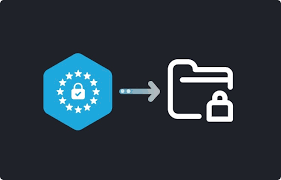The Impact of Decentralized Finance (DeFi) on Modern Business Models
Decentralized finance, commonly known as DeFi, refers to financial services built on blockchain networks that operate without traditional intermediaries. DeFi platforms enable automated, transparent, and permissionless transactions by leveraging smart contracts. Key characteristics include trustless execution, open access, and composability, meaning services can interconnect to build complex financial products.
DeFi emerged as a significant force in the global financial ecosystem in recent years. Early applications centered on peer-to-peer lending and decentralized exchanges. Growth accelerated as developers created innovative protocols for swapping assets, earning yields, and managing risk. Today, DeFi represents a transformational movement that is reshaping business models across industries by providing alternative financing and payment mechanisms.
Core Components of DeFi
Decentralized Exchanges and Automated Market Makers
Decentralized exchanges facilitate direct trading of digital assets without centralized order books. Automated market makers, or AMMs, use liquidity pools and algorithmic pricing to provide continuous market access. Participants deposit tokens into pools, earning fees in return. This structure lowers barriers to entry and supports 24/7 trading. Crypto solutions services integrate AMMs into enterprise platforms, offering secure connectivity and streamlined liquidity management.
Lending, Borrowing and Yield Farming Protocols
DeFi lending platforms allow users to supply assets as collateral and borrow funds against them. Smart contracts automate interest rate adjustments based on supply and demand. Yield farming enhances returns by moving assets across protocols to capture the best rewards. Complex strategies can involve staking governance tokens or participating in liquidity mining campaigns. Crypto solutions services support businesses in deploying lending and yield farming strategies with risk monitoring and automated asset management tools.
Stablecoins and Payment Rail Innovations
Stablecoins are cryptocurrencies pegged to fiat currencies or commodities, offering price stability for everyday transactions. They underpin many DeFi protocols by providing predictable unit values. Innovations in payment rails include instant settlements, cross-border transfers with minimal fees, and programmable payments that execute upon specific conditions. Crypto solutions services provide integration with stablecoin networks and secure payment APIs, enabling enterprises to adopt efficient digital payment systems.
Business Model Innovation through DeFi
Disintermediation and Peer-to-Peer Value Transfer
By removing intermediaries such as banks and payment processors, DeFi enables direct value exchange between parties. Peer-to-peer lending, trading, and insurance reduce transaction costs and increase transparency. Businesses can leverage disintermediation to offer financial products with lower fees and faster settlement times. Crypto solutions services facilitate the integration of peer-to-peer rails into existing e-commerce, lending, and payroll systems.
Tokenization of Real and Digital Assets
Tokenization converts ownership rights to physical or digital assets into blockchain tokens. Real estate, artwork, and commodities can be fractionalized, making them accessible to more investors. Digital assets such as software licenses and intellectual property similarly benefit from tokenization. Smart contracts enforce ownership and transfer rules. Crypto solutions services assist enterprises by developing token issuances, compliance frameworks, and secondary market listing capabilities.
Governance Tokens and Community-Driven Ecosystems
Governance tokens give holders voting rights on protocol changes, funding allocations, and network parameters. This community-driven model aligns stakeholder incentives and fosters decentralized decision making. Businesses incorporating governance tokens can tap into collective intelligence and decentralize risk management. Crypto solutions services offer governance tooling, token distribution strategies, and secure voting interfaces to support decentralized ecosystem governance.
Benefits and Risks for Enterprises
Enhanced Transparency, Efficiency and Cost Savings
DeFi’s public ledger and smart contracts deliver audibility, reducing manual reconciliation and fraud risk. Automated processes streamline operations, cutting administrative overhead. Lower fees on peer-to-peer transactions and programmable payments translate into direct cost savings. Crypto solutions services embed these benefits into enterprise workflows, enabling real-time auditing and automated settlement.
Regulatory Uncertainty and Compliance Challenges
The fast pace of DeFi innovation has outstripped regulatory frameworks in many jurisdictions. Unclear definitions of securities, licensing requirements, and cross-border rules pose compliance challenges. Businesses must monitor evolving regulations and adapt policies accordingly. Crypto solutions services provide compliance modules, automated reporting, and risk assessments to navigate regulatory uncertainty.
Security Considerations and Smart Contract Vulnerabilities
DeFi protocols are vulnerable to exploits, bugs, and governance attacks. High-value pools attract sophisticated hackers. Security audits and formal verification help mitigate risks but cannot eliminate them entirely. Businesses must implement multi-layer security practices, continuous monitoring, and incident response plans. Crypto solutions services offer smart contract auditing, penetration testing, and on-chain monitoring to strengthen security posture.
Leveraging Crypto Solutions Services in DeFi Adoption
Integration Frameworks Provided by Crypto Solutions Services
Crypto solutions services deliver integration frameworks that connect enterprise systems to DeFi protocols via APIs and middleware. These frameworks abstract low-level blockchain interactions and provide unified interfaces for asset transfer, staking, and lending. Businesses benefit from reduced development effort and standardized integration patterns.
End-to-End DeFi Infrastructure and Platform Support
End-to-end support includes node hosting, network management, and data indexing. Crypto solutions services offer turnkey infrastructure for public and private blockchains, ensuring high availability and performance. Platform support covers wallet integration, transaction routing, and user management, enabling businesses to launch DeFi products rapidly.
Smart Contract Development, Auditing and Ongoing Support
Building custom DeFi applications requires robust smart contract development and testing. Crypto solutions services provide full lifecycle support, from requirements gathering to deployment. Formal audits identify vulnerabilities before production launch. Ongoing support includes patch management, feature upgrades, and protocol governance facilitation.
Real-World Case Studies
Examples of Enterprises Successfully Embedding DeFi Solutions
A multinational supply chain operator implemented tokenized supplier financing, reducing payment cycles from weeks to hours. A real estate firm launched fractional property investment tokens, expanding investor access and liquidity. A fintech startup built a cross-border payroll system using stablecoins, cutting fees by 60 percent.
Lessons Learned and Key Success Factors
Successful DeFi integration relies on a clear use case definition, robust security practices, and regulatory alignment. Early stakeholder engagement and transparent governance build trust. Crypto solutions services highlight the importance of modular architecture, comprehensive testing, and ongoing compliance monitoring to sustain DeFi initiatives.
Future Trends and Strategic Considerations
Cross-Chain Interoperability and Composability
The ability to transfer assets and data across blockchains will drive the next wave of DeFi innovation. Cross-chain bridges and interoperability protocols unite liquidity and functionality. Composable protocols enable rapid assembly of new financial products. Businesses should evaluate crypto solutions services that support multi-chain strategies and secure cross-chain messaging.
Institutional Adoption and Progressing Regulatory Frameworks
Large financial institutions are entering the DeFi space with custodial services, institutional-grade platforms, and governance collaboration. Regulators are developing clearer guidelines for crypto activities. Enterprises must stay abreast of institutional trends and regulatory updates. Crypto solutions services remain critical partners, offering regulatory intelligence and institutional compliance capabilities.
The Evolution of Decentralized Autonomous Organizations
Decentralized autonomous organizations represent the pinnacle of DeFi governance, operating entirely through code and token-weighted voting. DAOs manage treasury funds, launch grant programs, and govern protocol upgrades. As DAOs mature, businesses may adopt similar models for consortium-based decision making. Crypto solutions services provide DAO frameworks, voting modules, and treasury management tools to support this evolution.
Navigating the Future of Finance
Decentralized finance is reshaping modern business models by enabling peer-to-peer finance, asset tokenization, and community-driven governance. Enterprises gain transparency, efficiency, and new revenue streams but must address regulatory and security challenges. Crypto solutions services deliver the integration frameworks, infrastructure, and expert support needed to succeed in the DeFi landscape. By adopting best practices and leveraging specialized services, businesses can harness DeFi’s potential for sustainable growth. For customized strategies and platform implementations, reach out to sales@zchwantech.com.






